Impact of illegal catch in artisanal benthic fisheries under co-management regime: the case of Mocha Island, Chile
DOI: https://doi.org/10.3856/vol42-issue3-fulltext-14
Abstract
The regime of Management and Exploitation Areas for Benthic Resources (AMERB) in Chile, considered one of the greatest experiments of co-management on a global scale, still faces threats such as poaching. In AMERBs devoted to the ‘loco’ resource (Concholepas concholepas), fisheries management establishes total allowable catches assuming zero poaching, compromising sustainability. Taking as a case study the Mocha Island AMERBs devoted to the‘loco’ resource, by interviewing AMERB users, consultations with enforcement authorities, and collection of secondary data, an annual series of poaching was rebuilt, the bio-economic impact of poaching was simulated in one AMERB, and users feedback on the causes of and possible solutions for poaching was systematized. Poaching represent loss between 32-68% of annual gross historical revenues of the AMERB. According to the bio-economic projections, a stock of ‘loco’ in the AMERBs would be resilient to any combination of proposed levels of ‘Poaching’, ‘Harvest Rules’ and ‘Loco Prices’, unless poaching becomes ‘Uncontrolled’ (i.e., twice the maximum historical mortality rate due to poaching), depleting the formal fishery. AMERB users, cosidered more serious the poaching done by nonislanders compared to islander poaching, identifying common incentives to both. They expect more State action on non-islander thieves, and more confidence in their own organizations to control islanders offenders. To combat poaching in AMERBs, we propose mitigating their socio-economic incentives, assign in some cases exclusive territorial access rights to assignee organizations, and define strategies against illegal operations after conciliation of objectives between authorities and stakeholders.


